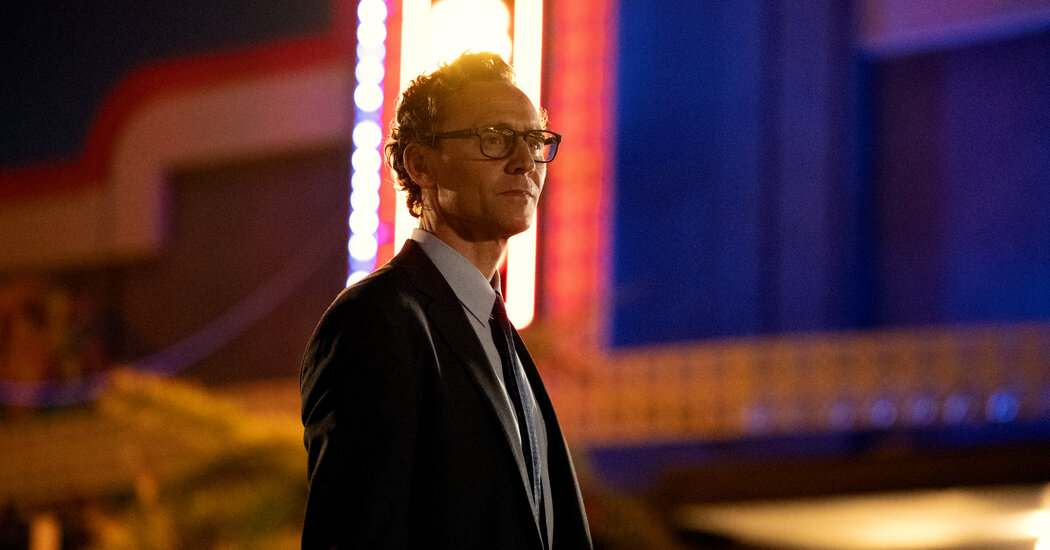
It’s the end of the world as we know it, or at least that’s how it seems in “The Life of Chuck.” A strange, feel-good fantasy about the end times, the movie traces a loose network of characters going about life while facing multiple personal and planetary catastrophes. When the story opens, Earth’s big clock, a.k.a. life itself, seems close to running out: Cataclysmic disasters, both natural and otherwise, are raging worldwide, species are rapidly going extinct, people are checking out and the internet is about to do the same. That’s bad, though given our enduring connectivity issues, it can also seem like just another day on Planet Reality.
“The Life of Chuck” is a curious movie, starting with its relatively relaxed, almost blasé attitude toward extinction of any kind. It uneasily mixes moods and tones, softens tragedies with smiles and foregrounds a title character — Chuck, an accountant with a tragic past, played as an adult by Tom Hiddleston — who has a tenuous hold on both the story and your interest. Chuck is present from the start but only comes to something like life midway through. He has a kid and is happily married, at least according to the narrator (Nick Offerman), whose dry, lightly detached voice-over winds throughout. That the narrator proves to be a more vivid presence than Chuck is another oddity, one that’s presumably unintentional.
Written and directed by Mike Flanagan, the movie is based on a vaporous three-part novella by Stephen King, also titled “The Life of Chuck,” that’s included in the author’s 2020 collection “If It Bleeds.” Flanagan’s adaptation is scrupulously, unwisely faithful to the source material. As in King’s tale, the movie unfolds in three sections in reverse chronological order. Also as in the original, Chuck first appears on a billboard that doesn’t seem to be selling anything. It just features a photo of a suited Chuck at a desk smiling out at the world, a mug in one hand, a pencil in the other. “39 Great Years!,” the billboard reads. “Thanks Chuck!”
The billboard catches the eye of the movie’s most fully realized character, Marty (Chiwetel Ejiofor), the focal point of the disaster-ridden inaugural chapter. A schoolteacher whose slight connection to Chuck emerges much later, Marty is dutifully plugging away in class despite the world’s looming end. “I contain multitudes,” one of his students unpersuasively reads from the Walt Whitman poem “Song of Myself.” Given everyone’s palpable listlessness, Marty’s included, T.S. Eliot’s “The Hollow Men” would probably have been too on the nose: “This is the way the world ends / Not with a bang but a whimper.”
